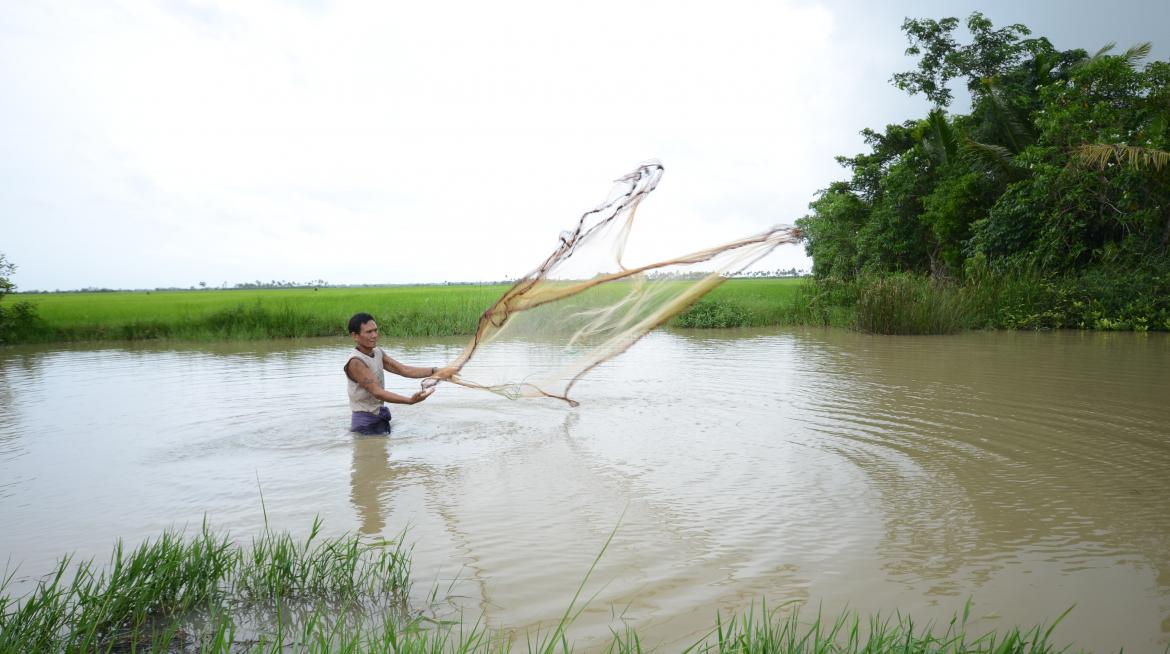
While Myanmar’s fish farming industry has often been perceived as slow, unproductive and largely export focused, new research funded by LIFT, in partnership with USAID, provides evidence to the contrary.
The research, undertaken by Michigan State University (MSU), the Centre for Economic and Social Development (CESD) and the International Food Policy Research Institute (IFPRI) , is presented in the report “Aquaculture in Transition: value chain transformation, fish and food security in Myanmar” which was released in late January to industry stakeholders and government representatives.
Through a review of existing data and an analysis of the structure and performance of Myanmar's aquaculture value chain, the report reveals significant growth in the fish farming industry, which has created jobs, increased incomes, improved nutrition and health objectives of many households.
The report estimates that the fish farm industry has increased output from the Delta region by 250% over the last decade, despite Cyclone Nargis. The land area for fish farming ponds is also estimated to have doubled. This significant growth is noted to have had knock-on effects for the rural economy, increasing demand for associated businesses and services, including pond digging services, feed mills, ice manufacturing, rural transport infrastructure and urban wholesale markets.
The report underlines the significant role of the fish farming industry and associated services in the expansion of rural employment opportunities, especially given almost double the labour is required per acre of fish harvest compared to rice paddy farming. Fish farming is noted as a more profitable endeavour compared to other agricultural pursuits. Commercial fish farming nurseries have the ability to provide between five and ten times more income than mango or rice paddy farming.
The dietary importance of fish to the people of Myanmar is pointed out. Myanmar’s people spend nearly as much money on fish (14% of food expenditure) as on rice (19% of food expenditure). Fish is key to securing improved and sufficient food and nutrient security in Myanmar and provides many vital micronutrients, which are particularly important for a child’s development.
The report also includes policy recommendations for more inclusive rural growth including better access to formal credit for fish farmers, fewer restrictions on land use, and increased private investment and competition in the fish feed sector.


